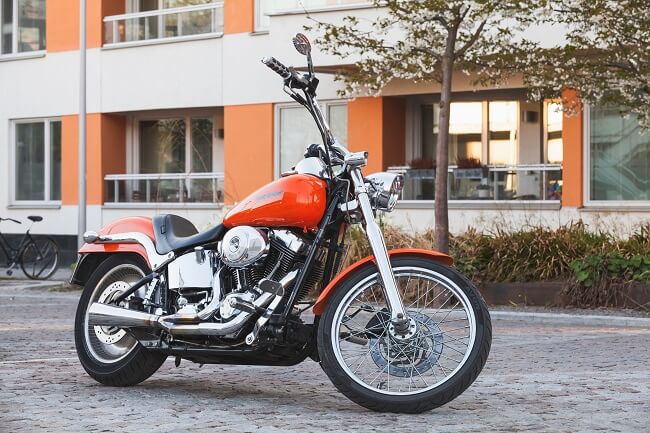By Rick Chromey
It’s the epitome of cool and an American icon. Nothing rumbles down the road like a Harley-Davidson. It’s a legendary expression of freedom, happiness, and style. Even if you don’t ride or like motorcycles, you’ve heard of Harley. Yes, there are more affordable bikes, and many would argue there are even better built ones.
So what makes Harley-Davidson “the” machine to ride? And what can the church learn from this legendary bike company?
Function Sells…and Changes
Leadership guru Seth Godin argues there is a pyramid of “value” that guides the American consciousness impacting consumer attitudes. At the pyramid’s base is pure function. If a biker’s only concern is function (getting from point A to B), then any brand is fine. In fact, many bikers pursue function first and foremost. Harleys are expensive bikes—to buy, to maintain, and to fix. They also don’t make “sport” bikes. Consequently, younger and novice bikers gravitate to more affordable options.
It seems reasonable. A bike is a bike is a bike…as long as its functionality is valued. But what happens when functionality fades?
For example, the Church is currently tethered to lecture-driven, stage-based, authoritarian, closed-system functions, reflecting modern principles of control, mechanism, and rationality. This model proved historically successful since the 1500s, but in a post-modern cyber culture, it’s failing. The social expressions that now thrive are open-system, experiential, participatory, and subjective. It’s why Kodak is extinct. The function (printed photos) lost value. Culture changed. They didn’t.
Relationships Matter
Godin further argues consumers want connection even more than function. Deep down we hunger for relationships, and we’ll pay more for brands that connect us. Harley-Davidson creates a family of riders or band of brothers. Buy a Harley and you are suddenly known, valued, and wanted. They’ve mastered “stickiness” from sales to service to events.
This is where churches lose traction today. Many church leaders blindly overlook how the average church service struggles to create authentic connection. The “players” are on the stage, separated and spotlighted. Pastors engineer events, not experiences. We gather in rooms that reflect lecture halls, stadiums, and theaters. Many church services are merely a concert and TedTalk…and leave people wanting more.
Our brand is “come and watch” when our audience hungers for “interact and experience.” This ecclesiastical disconnect provides a compelling reason why many people stop going to church.
The Style of Now
The two highest levels of “value” are style and relevance. Godin contends, “At the top of the hierarchy is our quest for scarcity, desire, and the hotness of now.” He’s right. Harley-Davidson makes a great bike these days, worth every penny. But what makes Harley truly attractive is its hip mystique. Harleys boast a patented, distinctive sound that every biker knows. Anybody can ride a motorcycle, but only “cool” guys (and gals) ride Harleys. Harleys even have their own line of fashion and music. Orange and black remains the new black.
I think this is why some churches (and small groups) explode in growth. If everyone is talking about “your church,” then “your church” is where everybody wants to go. And if you have great functionality (attractive ministries, encouraging worship, engaging messages, deep spiritual practices) and compelling community (or “stickiness”), then you’ll not only draw visitors but also retain (and empower) them.
The secret sauce to growth, as Harley-Davidson reveals, is experiential interactivity.
After all, Harley-Davidson doesn’t peddle motorcycles; they sell friendships and freedom. You live to ride because you ride to live.
It’s a good lesson for the Church.
We don’t sell a system, services, or even “salvation;” we promote GRACE. We deal HOPE. We serve RECONCILIATION. We create COMMUNITY. We unleash MISSION.
It’s how we (should) roll.


